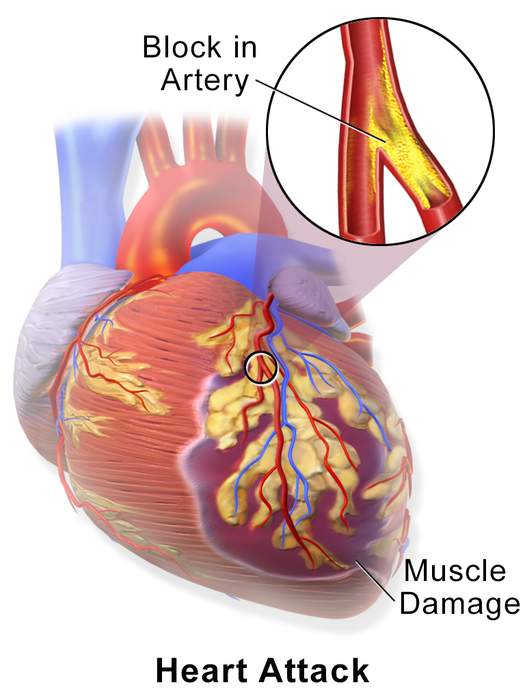
Tamil Actor Daniel Balaji known for iconic roles Passes Away at 48 Due to Heart Attack | Oneindia
Join us as we pay tribute to the versatile talent of Tamil cinema, Daniel Balaji, who passed away at the age of 48. Known for his..

A myocardial infarction (MI), commonly known as a heart attack, occurs when blood flow decreases or stops to a part of the heart, causing damage to the heart muscle. The most common symptom is chest pain or discomfort which may travel into the shoulder, arm, back, neck or jaw. Often it occurs in the center or left side of the chest and lasts for more than a few minutes. The discomfort may occasionally feel like heartburn. Other symptoms may include shortness of breath, nausea, feeling faint, a cold sweat or feeling tired. About 30% of people have atypical symptoms. Women more often present without chest pain and instead have neck pain, arm pain or feel tired. Among those over 75 years old, about 5% have had an MI with little or no history of symptoms. An MI may cause heart failure, an irregular heartbeat, cardiogenic shock or cardiac arrest.
Join us as we pay tribute to the versatile talent of Tamil cinema, Daniel Balaji, who passed away at the age of 48. Known for his..
Sam Rubin -- a longtime entertainment reporter for the KTLA news station in Los Angeles -- has died ... TMZ has learned. Sources..